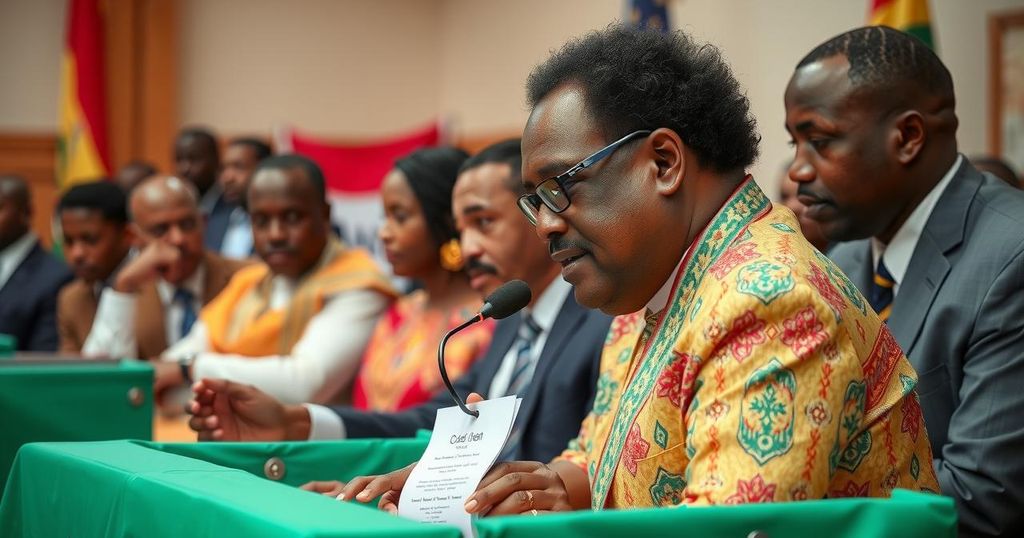Chad’s Parliamentary Election Under Scrutiny Amid Opposition Boycotts
Voting in Chad’s first parliamentary election in 13 years is occurring amidst calls for opposition boycotts, with claims of predetermined results overshadowing the legitimacy of the process. President Mahamat Idriss Deby Itno’s government promotes the elections as a step towards democracy, but opposition voices express skepticism about electoral integrity amid socioeconomic challenges and security threats.
Chad is currently holding its first parliamentary election in 13 years, a significant event stage-managed by the government as a transition towards ending military governance. Voters are tasked with selecting a new parliament, provincial assemblies, and local councils. However, significant elements of the opposition have called for a boycott, suggesting that the electoral outcomes were predetermined. Early voting in the capital N’Djamena revealed a low turnout, attributed by election officials to unfavorably brisk weather. The main opposition parties declared their intentions to abstain from the elections due to widespread mistrust, asserting that the election had already been manipulated in favor of President Mahamat Idriss Deby Itno, who assumed power through military means.
In an effort to motivate citizens, President Deby urged eligible voters to participate in what he described as a momentous occasion on social media, despite opposition claims that predetermined results rendered the process meaningless. Members from the opposition, such as Succes Masra of the Transformers party, emphasized their skepticism, declaring that the results were already encoded in their systems. Amidst these claims, a voter expressed a desire for transformational change, hoping for increasing job opportunities, stability in prices, and greater social justice.
While a significant number of voters in the military and among nomads reported high turnout rates, the opposition continues to raise concerns about electoral integrity, citing issues such as the disappearance of ballots. The elections are occurring against a backdrop of violent unrest instigated by groups like Boko Haram, alongside strained relations with France, Chad’s former colonial authority. Election monitors from various international organizations are on-site to oversee the proceedings, elevating the stakes as government officials propose these elections as the final step towards establishing democratic norms in the country. Such assertions contrast starkly with the realities reported from the ground, where the opposition remains vigilant against perceived electoral fraud, urging the public to remain aware and proactive.
Chad has been under military rule since 2021, following the death of long-term leader Idriss Deby. This current parliamentary election, the first in over a decade, is framed by the government as a critical step in transitioning to a democratic governance structure. However, there is substantial dissent among opposition parties regarding the legitimacy of the electoral process and the intentions behind it. As social and economic challenges persist, coupled with ongoing security threats from extremist groups, the Kenyan political landscape remains highly volatile, attracting both national and international scrutiny.
The ongoing parliamentary elections in Chad highlight the complex interplay between governance, public sentiment, and electoral integrity. Despite the government’s assurances of a legitimate electoral process, substantial opposition boycotts and claims of predetermined outcomes cast a shadow over the electoral legitimacy. This situation is compounded by socio-economic challenges and security threats, necessitating close observation and scrutiny going forward. As Chad endeavors on its declared path toward democracy, the response of its populace and the effectiveness of its political systems will be pivotal to the nation’s future.
Original Source: www.aljazeera.com




Post Comment